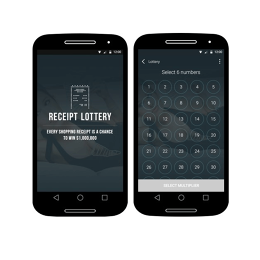While plenty of advertising companies aggregate data about consumers behind their backs, one startup allows users to openly trade their purchase histories for rewards.


San Francisco-based InfoScout offers a set of smartphone apps that lets users snap pictures of shopping receipts in exchange for incentives like credit card-style reward points and sweepstakes entries. The company digitizes the receipts with a mix of optical character recognition and crowdsourced help from services such as Amazon's Mechanical Turk.
Then it bundles that purchase information into reports it offers to companies like Procter & Gamble and Unilever, letting them see how consumer preferences evolve over time and how discounts and promotions affect sales.
"Our ability to provide these insights back to the brands in near real time, literally within days, is something they've never had before," claims CEO Jared Schrieber, who cofounded InfoScout in 2011.
Schrieber says that while brands can get some data from programs like supermarket reward card programs, those usually only track customer activity at one particular retail company.
"We're not trying to change what people buy," Schrieber says. "We're just trying to observe it."
InfoScout's apps—including Shoparoo (which turns receipts into donations to schools), Receipt Hog (which lets users earn points they can trade for gift cards or cash at an effective rate of a few cents per receipt), and Receipt Lottery, which basically lets users turn their receipts into lottery tickets—encourage users to snap pictures of all of their receipts to earn more rewards.
More than 102,000 Receipt Hog users have cashed out their points, for a total of more than $2.6 million in rewards, a company spokeswoman wrote in an email. Shoparoo users are expected to have generated $2.3 million in school donations by the end of 2016, and Receipt Lottery has seen about 500 winners since its launch a few months ago, she wrote.
Schrieber says the different apps appeal to different demographic groups. Shoparoo naturally attracts more parents. Receipt Hog attracts more single people and a generally more diverse user base who enjoy its casual gaming dynamic, which lets users "feed" a virtual pig that generates more rewards as it levels up.
Receipt Lottery, designed to be played similarly to state lotteries, attracts a bigger male audience than the other apps, Schrieber says, and a higher percentage of people who shop at convenience stores as compared to supermarkets.


"We built a portfolio of apps that reach different people for different reasons," he says. "As a result, when we pull it all back together, we have a more representative picture of America."
The company says it has collected data on more than 100 million shopping trips and is processing about 300,000 receipts per day. Users can of course choose not to scan receipts that include purchases they find embarrassing, but Schrieber says many just upload every receipt, so the apps gather quite a bit of data about sensitive purchases, such as condoms and feminine hygiene products. Ultimately, what type of purchase information users feel is worth trading for a few cents or a sweepstakes entry is up to them.
Users can participate anonymously or receive additional rewards for linking the app to their Facebook profiles, answering demographic questions, or taking occasional surveys. Among the company's discoveries so far: Women purchase more Old Spice products than men, and white shoppers are more likely to buy Old El Paso products than Hispanic consumers.

The company can also observe when consumers switch to new brands for particular products—and even survey them about why they switched, offering additional rewards if they're willing to answer.
"Anything where we're asking a participant to provide more data or more information about themselves, we pay them more," says Schrieber.